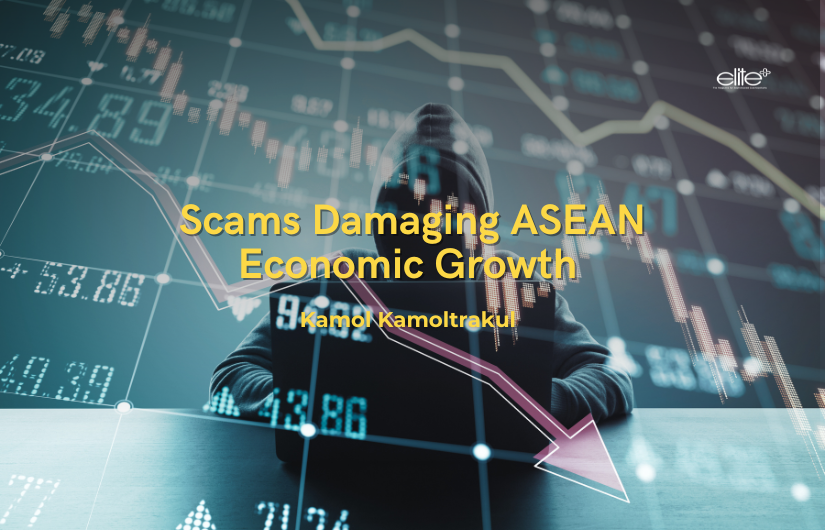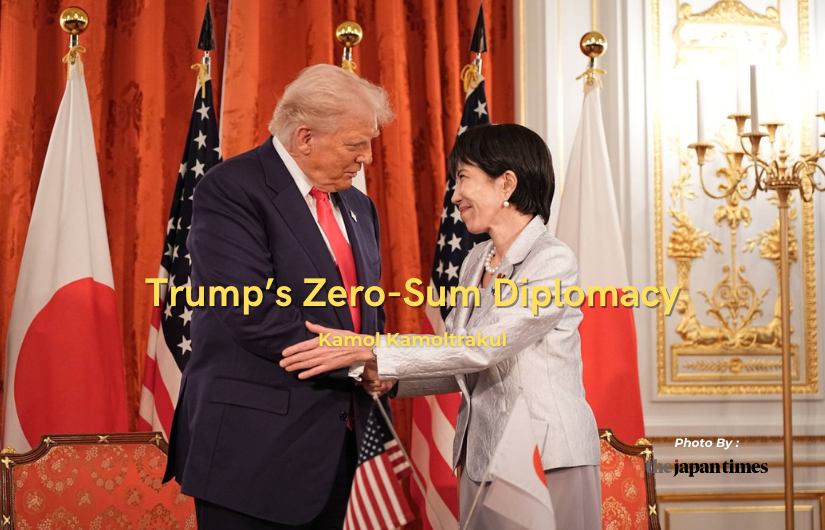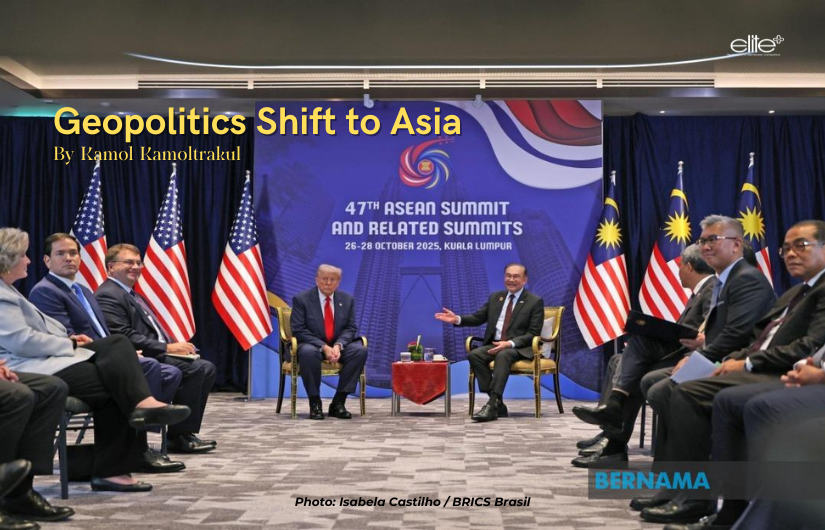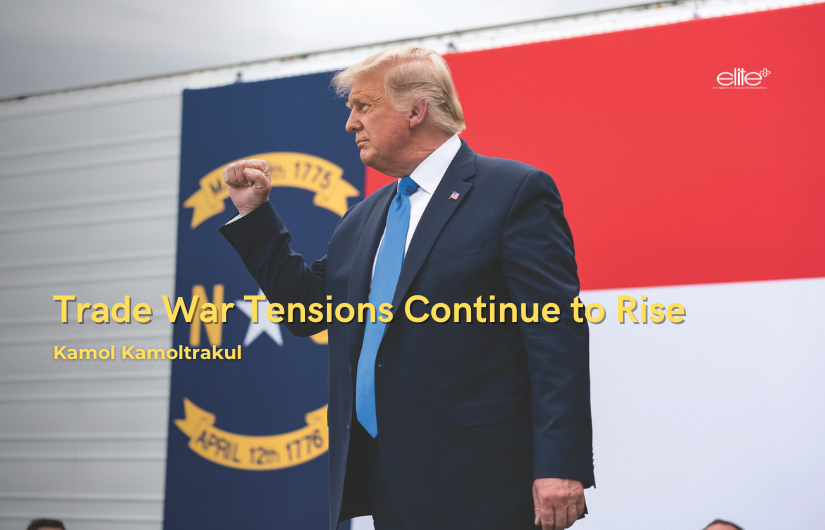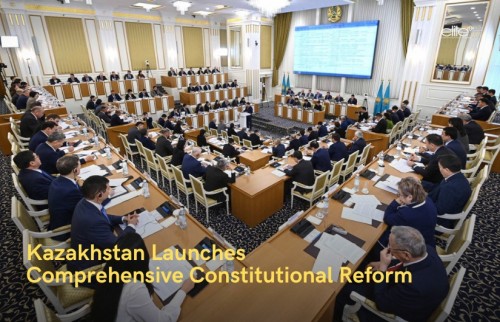The Impact and Cost of War
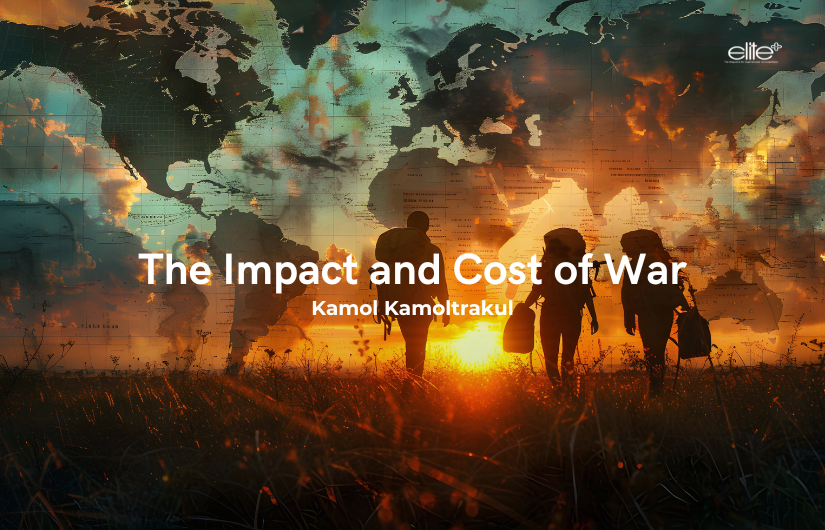
It’s easy for people to talk about going to war, take the current Thai-Cambodian conflict, for instance. And don’t forget the politicians. Who really knows and considers the cost, impact and consequences, particularly the loss of human life?
Most wars cannot be avoided because there are those who will benefit. To understand the root cause of war, we need to understand those behind the powerful lobbies who are paid by members of the military industrial complex (MIC) and interest groups. The pro-Israel lobby in the US, including groups like the American Israel Public Affairs Committee (AIPAC), has historically played a significant role in shaping US policy towards Israel and wars in the Middle East in the past four decades. While public opinion towards the Israeli-Palestinian conflict is divided, support for Israel remains strong among some segments of the US population.
Thus, the current Israel-Iran war is a case worth exploring. It started when Israel launched a military attack on Iran on 13 June, targeting their nuclear enrichment program and killing several senior leaders and scientists. Iran retaliated with strikes of their own, and the two countries have been trading attacks since.
According to Iran’s Ministry of Health, Israeli airstrikes have killed 224 people and wounded 1,277, many of whom are civilians. Israeli media, including Channel 12, reported that 25 Israelis have been killed and over 800 injured in the Iranian attacks. At least 240 people were wounded by Iranian missile strikes on Israel on Thursday morning, the 19th of June, the AP reported.
In the first week of fighting, Israeli strikes on Iran have killed at least 657 people and wounded 2,037 others, a human rights group said. The Washington-based group Human Rights Activists said of those dead, it identified 263 civilians and 164 security force personnel being killed.
On economic impact, according to a report by Germany's Deutsche Welle (DW), Israel is now fighting on at least two fronts with military spending up and their economy declining. Israel’s financial infrastructure is straining under the burden. Military spending has surged dramatically. In 2024, Israel’s defence budget soared by 65%, reaching USD 46 billion, equivalent to 8.8% of its GDP and ranking it second in global military spending only after Ukraine. The government’s 2025 budget has also jumped by 21% to a record USD 215 billion, with USD 38 billion allocated for defence. By funding part of its mounting military expenditures through higher taxes, citizens are getting angrier as they are already reeling from war-induced disruptions.
War is extremely costly. Beyond the destruction, loss of life and human tragedy, vast resources must be spent on mobilising forces and acquiring equipment. The Israeli economy is facing acute labour shortages as tens of thousands of reservists have had to leave their civilian jobs to serve on the front lines.
Itay Eter, an Israeli economist from Tel Aviv University, said, “War is very expensive, and there is massive uncertainty regarding the short- and long-term future. The costs of both defensive and offensive operations are enormous. This will certainly have negative effects on the budget deficit, GDP and Israel’s debt levels.” To offset part of the deficit, Israel has raised its value-added tax from 17% to 18% and increased taxes on health services.
Furthermore, many Israelis have spent hundreds of days on reserve duty because of the Gaza conflict over the past 20 months while thousands more have been displaced from their homes. Social services are buckling under the pressure. The economic toll has intensified since Israel attacked Iran.
“Many people haven’t returned to work since the strikes,” Eter admitted. Industries, including manufacturing, commerce, technology and education, have been disrupted.
In addition, international airlines have halted flights to and from Israel, with some removing their aircraft from the country’s airports entirely. Large portions of Middle Eastern airspace have also been closed.
Eter went on to say, “Short-term risks for investors have risen, but much depends on how long this conflict lasts and how it will end. If we enter a prolonged war with Iran, which is a real possibility, it’s unlikely the Israeli economy will recover.”
“Security is a major long-term challenge for Israel’s economy,” he said. “And the internal social divide is a reality we can no longer ignore.”
According to expert assessments cited by the Wall Street Journal, the cost of deploying missile defence systems alone could amount to as much as USD 200 million per day. Meanwhile, the economic impact of the Iranian strikes is being felt across the Israeli-occupied cities. Israeli newspaper Maariv acknowledged that in Tel Aviv, half of all shops have shut down due to the missile attacks. The report described marketplaces in the city as “empty and silent”, reflecting widespread disruption in daily life.
However, it could be difficult to exit the war as the US plays a significant role in supporting Israel, primarily due to a combination of strategic interests, shared values and domestic political considerations. Historically, the US has seen Israel as a key strategic ally in the Middle East, particularly during the Cold War. This support has evolved into a strong alliance encompassing military, economic and intelligence cooperation. Additionally, there are strong domestic political lobbies and a perception of shared democratic values that contribute to the close relationship.
The US has viewed Israel as a vital partner in maintaining stability in the volatile Middle East, acting as a counterweight to regional rivals like Iran. Israel is a major recipient of US military aid and has become a key partner in developing advanced military technologies and intelligence sharing. The US and Israel share concerns about Iran's nuclear ambitions and its influence in the region, leading to close collaboration on these issues. Israel provides valuable intelligence to the US on regional threats and developments.
The US is also a major trading partner and investor in Israel, further strengthening the economic ties between the two countries. Israel is a significant buyer of US military equipment, contributing to the US defence industry. In essence, the US-Israel relationship is a complex one, driven by a combination of strategic interests, shared values and domestic political considerations, resulting in a strong and enduring alliance.
However, a full-blown war could make things even worse, much worse, experts have warned. The escalating crisis has already triggered the largest single-day oil price surge in the last three years, and the question for many is how much higher the oil markets might climb. The price of Brent crude jumped by about USD 10 a barrel since the start of June to a high of USD 78 a barrel, amid growing concerns that the conflict could wipe out Iran’s oil exports or cut the flow of crude from the wider Middle East region to the global market.
Furthermore, much of the world’s oil and other key commodities, such as natural gas, pass through busy sea lanes in the Middle East, including the Strait of Hormuz. The strait, a narrow waterway separating Iran from the Gulf states, links the Arabian Sea to the Indian Ocean. It is a conduit for one-third of the world’s seaborne oil supplies, channelling roughly 21 million barrels every day. If the strait is interrupted, the oil price could jump to over USD 100 a barrel.
At just 21 miles wide at its narrowest point--and significantly bordered by Iran--the Strait of Hormuz handles the transit of nearly 20% of global oil supply. But that’s only part of the story. It is also a critical artery for liquefied natural gas (LNG) transit. Many important energy-producing countries rely on the Strait of Hormuz to get these products to market.
There are three major global LNG producers, each with about 20% of the global market: the US, Qatar and Australia. Qatar ships around 77 million metric tons of LNG annually, most of it passing through the Strait. Its customers include energy-hungry economies such as Japan, South Korea, China and India, as well as parts of Europe. If Qatar is cut off, those nations lose part of their energy supply almost overnight.
The US just attacked three of Iran’s nuclear sites with massive ‘bunker buster’ bombs without congressional approval, which is required according to the mandate of the Constitution. Renowned Senator Tammy Duckworth issued a statement, saying, “The Trump Administration illegally bombed Iran, putting American troops at risk while threatening to draw us into yet another Middle East war without constitutionally required congressional approval.”
Iran’s parliament has voted to close the vital Strait of Hormuz. This move, which could block USD 1 billion in oil shipments per day, is likely to send oil prices soaring. Brent crude oil, the international standard, jumped 3.9% to USD 80 a barrel on Sunday, 22 June, while US crude rose 4.3% to USD 77 a barrel.
On the same day, US Secretary of State Marco Rubio called on China to encourage Iran to keep the Strait of Hormuz open after Washington carried out strikes on the Iranian nuclear sites.
While the EIA estimates that a large majority, around 80%, of the petroleum products moving through the Strait go to Asian markets, around two million barrels a day end up in the US.
Hence, the world’s sluggish economy will feel the impact, especially as Asian countries, most notably China, rely on Middle East energy.
In war there is no winner. If the Israel-Iran war escalates to nuclear war, then it’s doom for everyone.

Kamol Kamoltrakul 48 Posts
Visiting lecturer: Navy Academy Institution, NIDA, School of Governor, Ministry of Interior, Chulalongkorn University, Former Lecturer, ABAC Honorary Advisor Trade and Industry Committee Senate. Senior advisor, Standing Committee on Finance and Banking, The House of Representative. Former Advisor to the Minister of Interior Board Member of ThaiPBS Board Member Of Thai Consumer Council Columnist : Prachachart Business Weekly, Matichon Weekly, Khom Chad Luke Daily Former Program Director Asian Forum for Human Rights and Development ( FORUM-ASIA).




